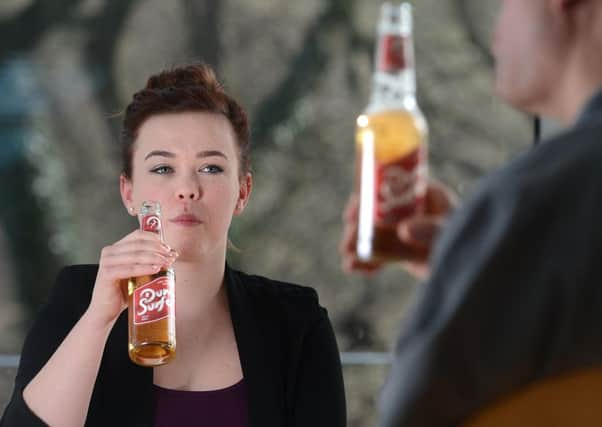Scots firm perfects low alcohol ‘rehydrating’ beer


Because they contain less sugar and salt than sport drinks, and share a similar taste to beer, they are gaining a following among those who want something healthy without sacrificing the enjoyment of alcoholic drinks.
The latest addition to these so-called “new age” beers is Dunesurfer, developed by Edinburgh-based industry veteran John Hunt, who has spent months working with brewing consultants to create his own unique recipe.
Advertisement
Hide AdAdvertisement
Hide AdHunt, a former international executive with brewing giants Scottish & Newcastle and Heineken, has launched Greyhound Drinks and has secured a deal with Camerons in Hartlepool to produce Dunesurfer. He expects it go on sale in a number of supermarkets in June and thinks it will appeal particularly to fans of craft beers and to women who prefer lighter drinks.
There is also interest from a number of sports clubs, who believe the brew will appeal to athletes and ordinary gym-goers who want a healthy refreshing drink that is also an alcoholic beer.
These new beers help speed hydration and remedy cramps, while B vitamins reduce tiredness and fatigue. Fruit ingredients such as acai, goji and yuzu contain natural antioxidants which are said to combat diseases such as arthritis, cancer and even Alzheimer’s.
“Supermarkets are certainly becoming more interested in these healthier beers as they see the consumer moving that way,” said Hunt.
Drinks such as Dunesurfer contain about 2 per cent alcohol which means they are “sessionable”, allowing drinkers to consume volume with less likelihood of getting drunk or suffering the effects of a hangover.
This “lower alcohol” category is now gaining market share as UK beer volumes are expected to decline by 15 per cent over the next five years.
It is also moving in on the soft drinks market, dominated by sugary brands. More consumers also want gluten-free, vitamin-laden drinks that revitalise as well as taste good.
“The big challenge is getting the right flavour,” added Hunt, who has been developing his recipe and business plan since 2012. He has worked with brand marketing agency Red Spider in Glasgow and the graphic design firm Nevis in Edinburgh. Lux Illuminating, also in Edinburgh, is developing a digital media strategy.
Advertisement
Hide AdAdvertisement
Hide AdCamerons will produce an initial 5,000 hectolitres of Dunesurfer a year, rising to 100,000 within five years.
Hunt says he has had enquiries about the drink from as far afield as Australia, where the name is likely to resonate among young beachgoers.